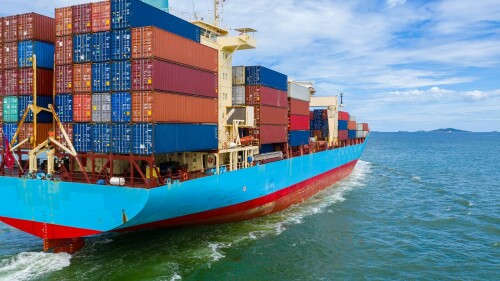Karachi Port Reduces Charges to Promote Sustainable Trade
The Pakistani government has declared a 50% decrease in handling, vessel, and storage fees for dry bulk exports at Karachi Port. Maritime Minister Junaid Anwar Chaudhry stated this initiative aims to lessen the carbon footprint of trade logistics and support environmentally conscious growth.
This action is anticipated to assist dry bulk goods exporters and cut down on emissions through more efficient port operations and less congestion.
According to a ministry statement, Chaudhry revealed this significant reduction in port charges “as a component of a wider plan to decarbonize the maritime industry and improve energy efficiency in port activities.”
The statement quoted him as saying, “By decreasing operational expenses and simplifying logistics, we are not just enhancing trade competitiveness but also promoting climate resilience.”
Key Elements of the Reform
- A 50% reduction in port handling, vessel, and storage charges.
- Elimination of the previously considered annual 5% increase in these charges.
Chaudhry emphasized, “This is more than a financial move; it’s a step towards low-impact, future-proof maritime trade. A more effective port decreases vessel idle time, lowers fuel usage, and promotes greener supply chains.”
The minister pointed out that these modifications are part of a nationwide strategy to update port infrastructure, boost sustainability, and shift towards intelligent maritime practices.
The Maritime Ministry stated that this declaration aligns with the maritime minister’s recent endeavors to improve port efficiency, including the establishment of a high-level committee to decrease container dwell time by 70% and the use of sophisticated technologies like AI and drones for monitoring activities, which further emphasizes the government’s proactive stance in modernizing maritime trade logistics.
As sea-level rise, severe weather phenomena, and maritime pollution intensify, the minister noted that climate adaptation is being progressively incorporated into trade logistics as “a component of a larger plan to establish the nation as a sustainable maritime hub in the face of climate change.”
A similar 50% reduction was previously announced for export-oriented cargoes at Port Qasim several weeks prior.



Comments (0)
No comments yet. Be the first to comment!
Leave a Comment